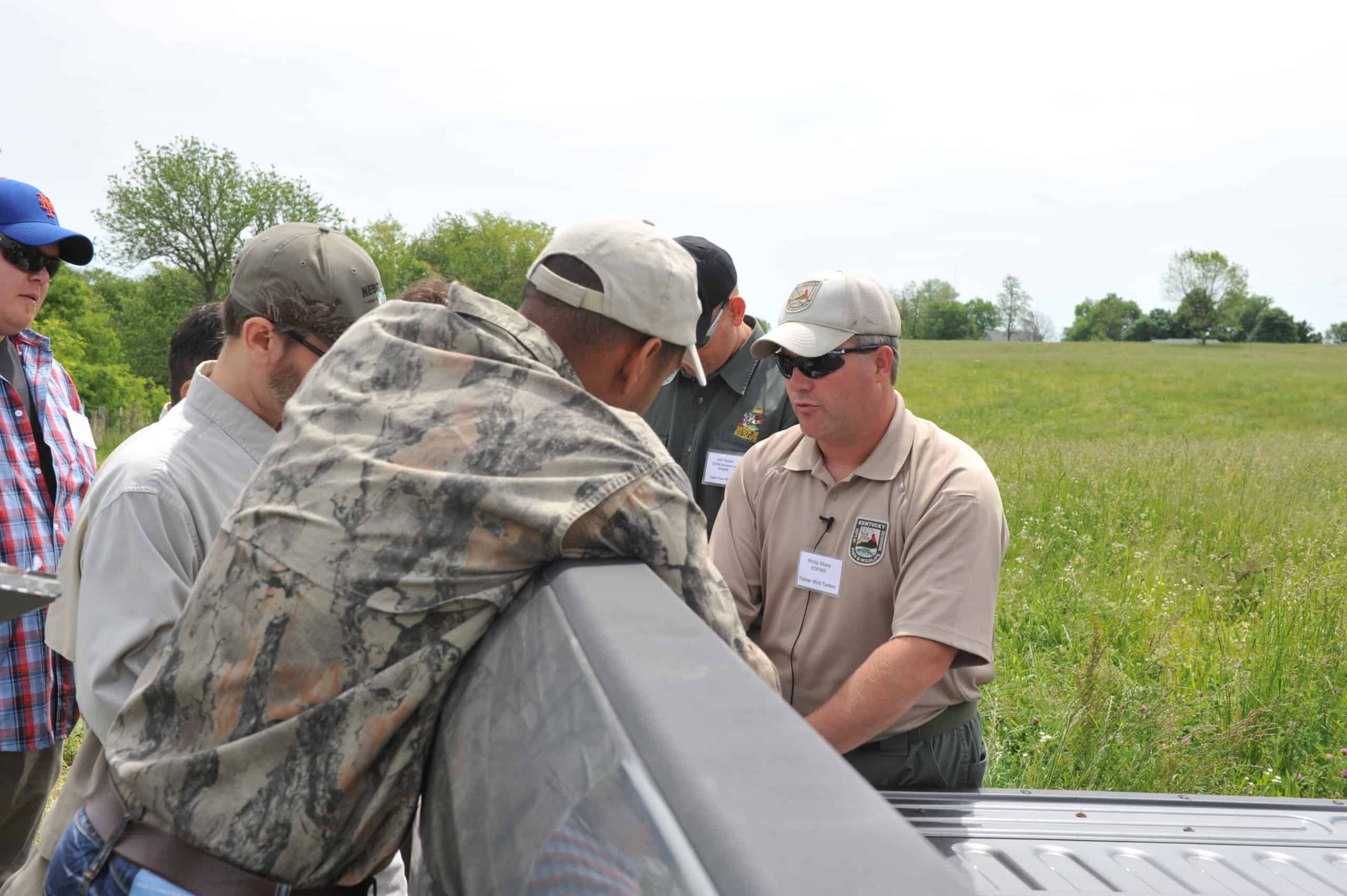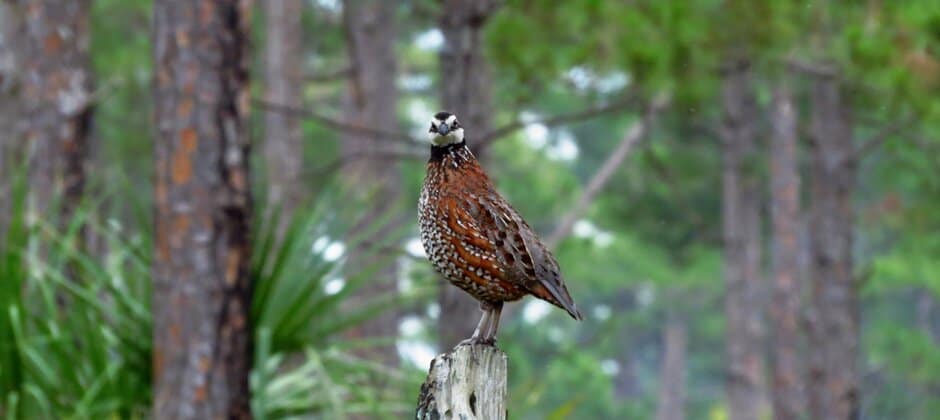Share this article
Private lands piece earns first Best Contributed Article Award
After a group of wildlifers came together to develop a special issue for The Wildlife Society Bulletin on the importance of private lands conservation in September 2019, they soon realized there was something still missing from the story—the personal aspect.
A few years later, they published an article in May/June 2021 issue of The Wildlife Professional to tackle that part of the story. Their article titled “A Changing Landscape: Reimagining Conservation on Private Lands,” has earned them the Best Contributed Article Award. This is the first time the award is being presented.
“I think recognition, to be quite honest, in this profession is so limited,” said John Morgan, the director of the National Bobwhite and Grasslands Initiative (NBGI) and one of the authors of the article. To see The Wildlife Society recognizing the importance of the story, validated their hard work, he said.
Morgan worked with Kentucky Department of Fish and Wildlife Resources for 17 years prior to his position at NBGI. The state fish and wildlife agency has always been one of the leaders in private land resources and conservation, he said, which matched his personal ideas about conservation.
The TWP article highlights the work of KDFWR biologist Philip Sharp conserving private areas in the Livingston County National Bobwhite Focus Area in western Kentucky. Much of this involved lands enrolled in the Farm Bill’s Conservation Reserve Program (CRP). Unfortunately, state funding started to wane, and conserving bobwhites (Colinus virginianus) is “constant, expensive and difficult to achieve over long periods of time without consistent investments,” Morgan said. On top of that, policy changes made many of these CRP enrolled lands ineligible for reenrollment. “For us to watch it happen was a pretty painful thing to experience,” he said.
But Morgan and his co-authors wanted to tell Sharp’s story and show some positive things that came out of the negative situation. “Our motivation to write the article was to make sure his career’s efforts weren’t lost,” he said. “There’s got to be a better way to do conservation. And we wanted to use that story as a catalyst to start that conversation.”

Philip Sharp leads an NBGI Coordinated Implementation Program training for the habitat assessment protocol. Credit: KY Department of Fish and Wildlife
Sharp’s story inspired the development of a private lands working group within the Association of Fish and Wildlife Agencies. It also led to a well-attended national symposium at the North American Wildlife and Natural Resources Conference. “There wasn’t room for all of the attendees,” Morgan said. Another successful virtual symposium followed at the Southeastern Association of Fish and Wildlife Conference.
Feedback from other professionals relating to the story also came pouring in. “Philip wasn’t the only one in the country feeling rejected about his career,” Morgan said.
Morgan hopes the article continues the wave of momentum building nationally about the importance of private lands conservation. “The future is about elevated collaboration to solve complex challenges on private lands,” he said. “We’re truly trying to change the way people use and view the land. It doesn’t get more difficult than that.”
Header Image:
The Best Contributed Article Award highlights an article on bobwhite conservation on private lands.
Credit: Susan Young








